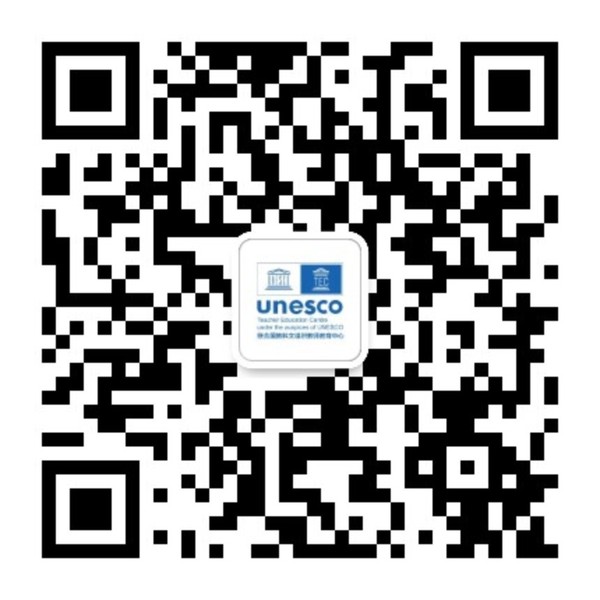In implementation of the spirit of Outline for Building a Strong Education Country (2024-2035), to strengthen international educational cooperation and exchanges, and to promote the international dissemination of China’s educational experience and the sustainable development of global education, the Academic Seminar on International Dissemination of Educational Knowledge and Building of a Strong Education Country was held at the UNESCO Teacher Education Centre from June 20 to 21, 2025. Hosted by the Comparative Education Branch of the Chinese Society of Education and organized by the Institute of International and Comparative Education at Shanghai Normal University (SHNU) and the UNESCO Teacher Education Centre, the seminar attracted over 100 experts, scholars, and frontline teachers from more than 30 domestic and overseas universities, research institutions, and journal organizations.
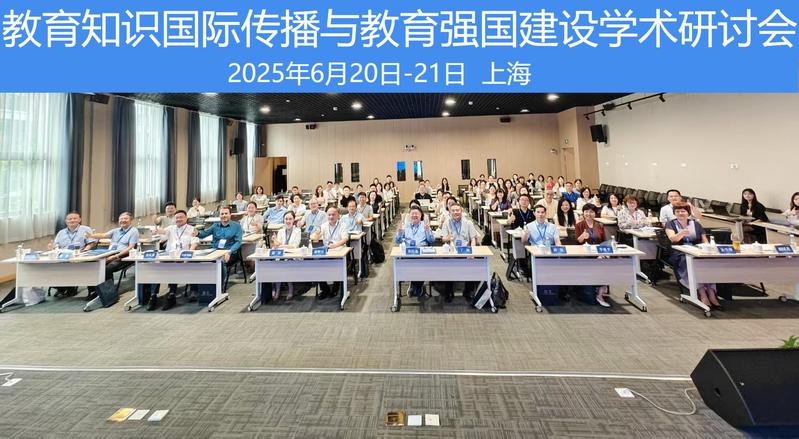
On the morning of June 21, the opening ceremony was held at the Shicheng Lecture Hall of the UNESCO Teacher Education Centre. Speeches were delivered by Jiang Mingjun, Member of the Party Standing Committee and Vice President of SHNU; Professor Teng Jun, Vice Chairman and Secretary-General of the Comparative Education Branch of the Chinese Society of Education and Vice Dean of the Faculty of Education at Beijing Normal University; and Professor Hu Guoyong, Vice Chairman of the Comparative Education Branch of the Chinese Society of Education and Dean of the Institute of International and Comparative Education at SHNU. The ceremony was chaired by Professor Kong Lingshuai, Standing Director of the Comparative Education Branch of the Chinese Society of Education and from the Institute of International and Comparative Education at SHNU.
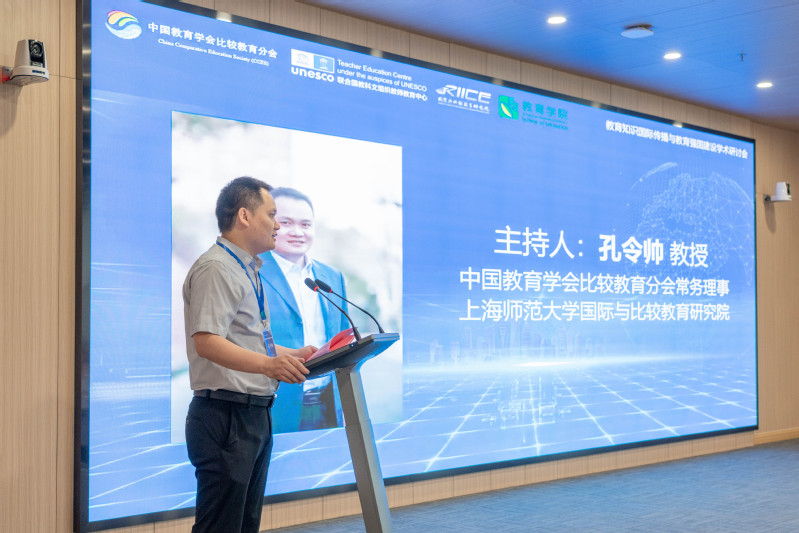
On behalf of SHNU, Jiang Mingjun extended a warm welcome and sincere thanks to all guests and scholars attending the seminar. He noted that the seminar, focusing on international dissemination of educational knowledge and building of a strong education country, addresses key issues in educational development, and is of great value for advancing high-quality development of China’s education sector and enhancing China’s voice and influence in global education governance. He commended the important role of SHNU and the UNESCO Teacher Education Centre in promoting international dissemination of Shanghai’s basic education and China’s teacher education, and wished the seminar a complete success.
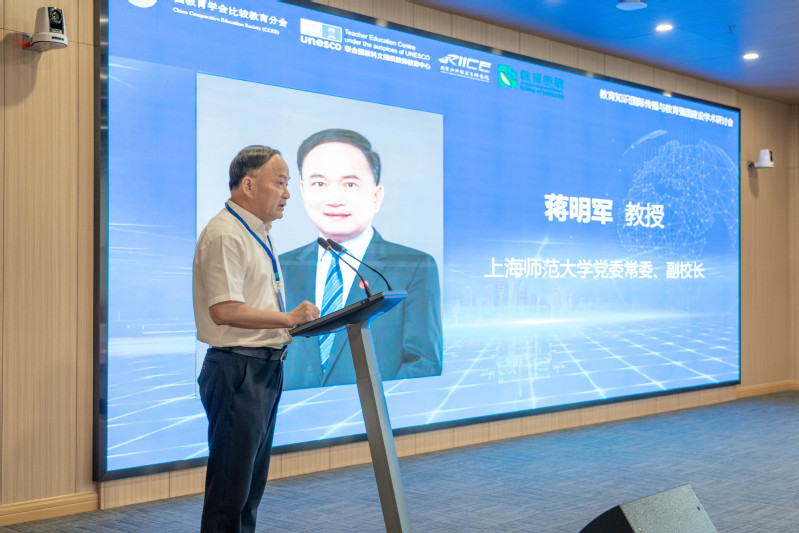
Professor Teng Jun, on behalf of the Comparative Education Branch, expressed gratitude to the faculty of SHNU and the UNESCO Teacher Education Centre for their professional support to the discipline of comparative education, their meticulous preparation for the seminar, and their efforts in advancing international educational dissemination. She also thanked scholars nationwide for contributing wisdom to the seminar’s topics, and wished all scholars fruitful outcomes in knowledge production.
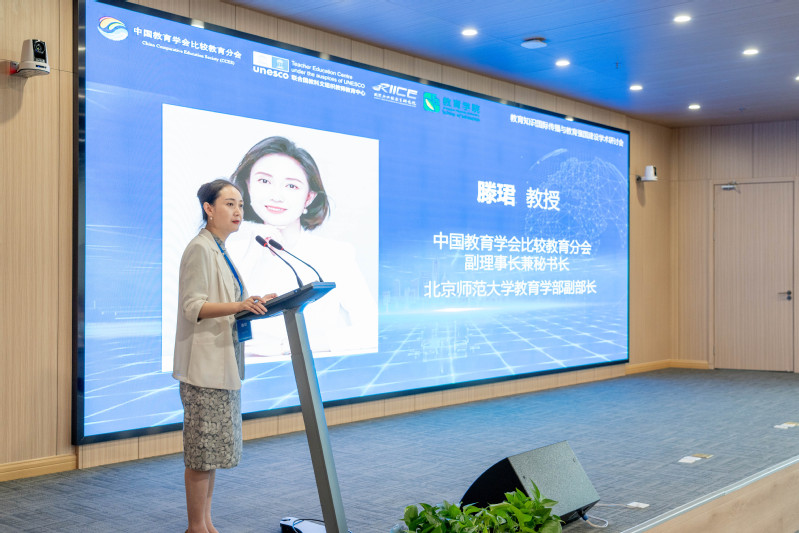
Professor Hu Guoyong, on behalf of the Institute of International and Comparative Education at SHNU, extended heartfelt thanks to the attending experts and scholars. He introduced the efforts and achievements of the UNESCO Teacher Education Centre in the international dissemination of educational knowledge. Finally, he stated that the UNESCO Teacher Education Centre is willing to serve as a base for China’s comparative education discipline, welcoming discussions and exchanges to jointly contribute to the development of comparative education.
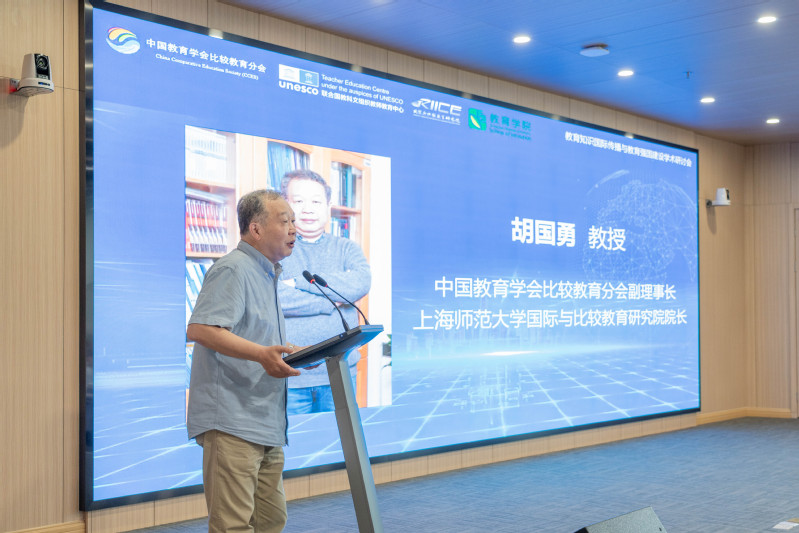
The keynote report session invited Professor Ding Gang, Dean of the Institute of Advanced Studies in Education at East China Normal University (ECNU); Professor Régis Malet, President of the Association Française de Recherche en Éducation Comparée and from the Institute of Teacher Education at the University of Bordeaux, France; Professor Jiang Kai, Dean of the Graduate School of Education at Peking University; and Professor Zhang Minxuan, Director of the UNESCO Teacher Education Centre and former President of SHNU. The session was chaired by Professor Li Yanping, Vice Chairman of the Comparative Education Branch of the Chinese Society of Education and from the Faculty of Education at Shaanxi Normal University.
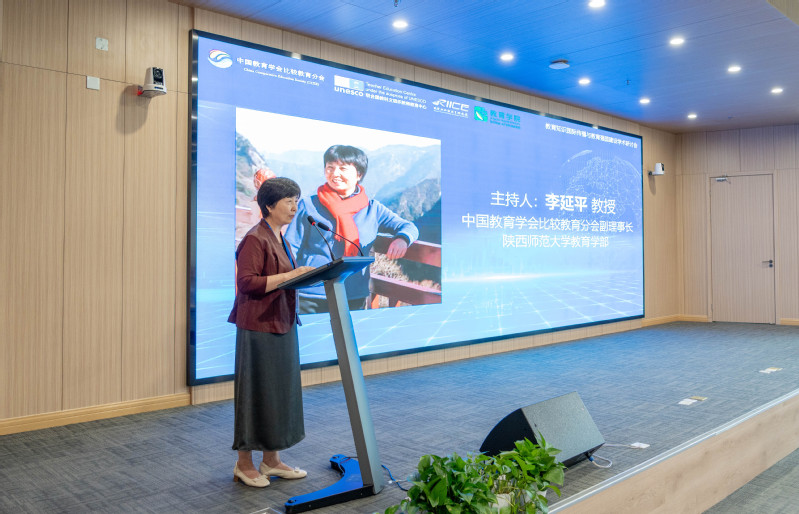
Professor Ding Gang focused on the dissemination methods of educational knowledge among civilizations, emphasizing the importance of theoretical dialogue between shared human educational ideas and China’s educational practices to build an independent knowledge system of Chinese pedagogy. He elaborated on three educational practices: rigorous examinations, continuous writing tasks, and grade evaluation, and how these shape disciplinary systems. He then introduced three educational venues—seminars, laboratories, and classrooms—and their applications across disciplines. Additionally, he discussed mutual influences in educational knowledge dissemination with detailed case studies. Finally, he stressed the need to balance autonomy and global engagement: first, reflect on oneself to strengthen knowledge originality and influence; second, understand others to deepen self-understanding and facilitate knowledge dissemination; third, seek common ground and consider China’s contributions to addressing global educational issues.
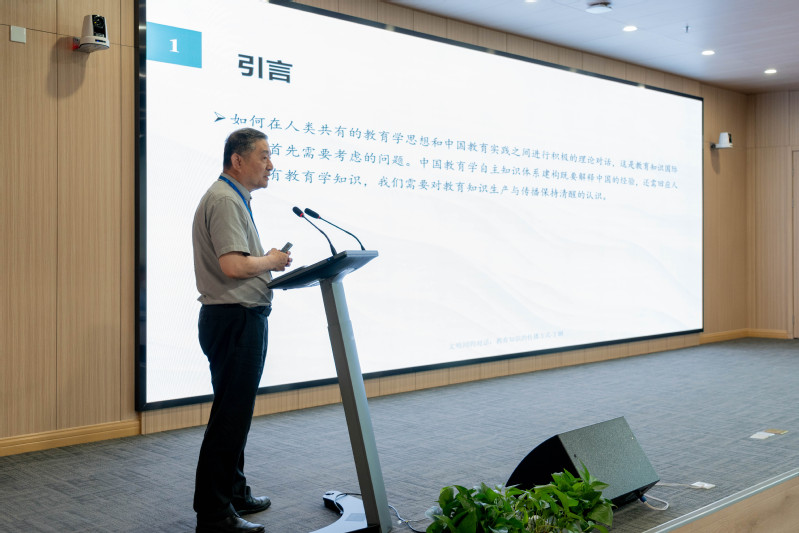
Professor Régis Malet, from a French scholar’s perspective, explored the characteristics of China’s education system, similarities and differences between Sino-French education, and opportunities and challenges in bilateral educational exchanges. He noted that China’s education, with a long history and emphasis on tradition, features a rigorous and competitive system where students and parents invest significant efforts. In terms of similarities, both countries view education as a key ladder for social mobility, with parents closely focus on academic performance and attaching great importance to educational achievements. However, notable differences exist in teacher-student relationships, learning methods, and after-school arrangements. While praising Chinese students’ outstanding performance in international exams, he expressed concern that intense educational competition may cause psychological stress, potentially hindering creativity, and acknowledged ongoing educational reforms in China. He concluded that the two countries should learn from each other, building bridges between educational concepts through exchange programs, research cooperation, and student mobility to achieve mutual enrichment, collective innovation, and a shared vision for education.
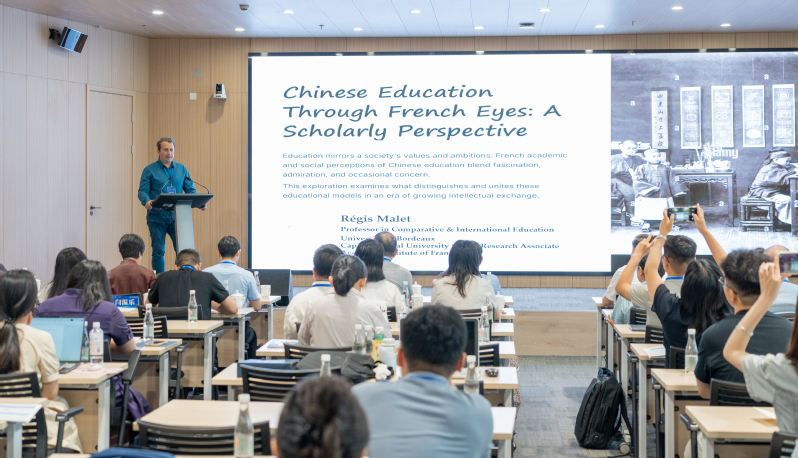
Professor Jiang Kai explored global talent cultivation from the perspective of cultural mutual learning. He introduced three dimensions of global talent cultivation, its historical development, and the evolution of the global landscape of international student mobility, with examples from the U.S., UK, China, and Japan to illustrate four driving forces behind such mobility. He pointed out that current global dynamics pose numerous challenges to international education, including weakened cooperation mechanisms, frequent geopolitical conflicts, restricted academic openness, and expanding international trust deficits. Drawing on communicative action theory, he explained its explanatory power and guiding role in global talent cultivation. Finally, he emphasized five key words for future-oriented global talent cultivation: responsibility, inclusiveness, dialogue, cooperation, and innovation, elaborating on the 理念 and practical calls for future global talent development.
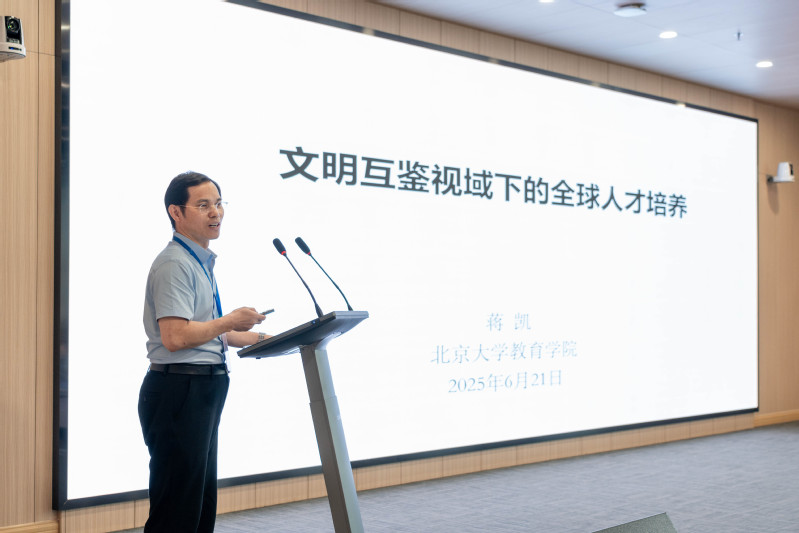
Professor Zhang Minxuan focused on the practices of U.S. comparative education scholars in international educational dissemination, constructing a research framework and analyzing historical processes. Based on educational case experiences, he built a framework covering knowledge production, targeted dissemination, knowledge products, dissemination methods, and effectiveness, introducing how U.S. comparative education scholars participate in international dissemination of U.S. education. He also elaborated on the historical process of U.S. educational international dissemination in four stages, with detailed explanations of historical backgrounds and dissemination practices in each stage, and highlighted four representative scholars and their specific practices. Finally, he summarized the evolution of U.S. educational international dissemination models, noting that China can learn from U.S. experiences in targeted dissemination and leveraging diverse platforms while maintaining its own characteristics to achieve mutual benefit in international dissemination.
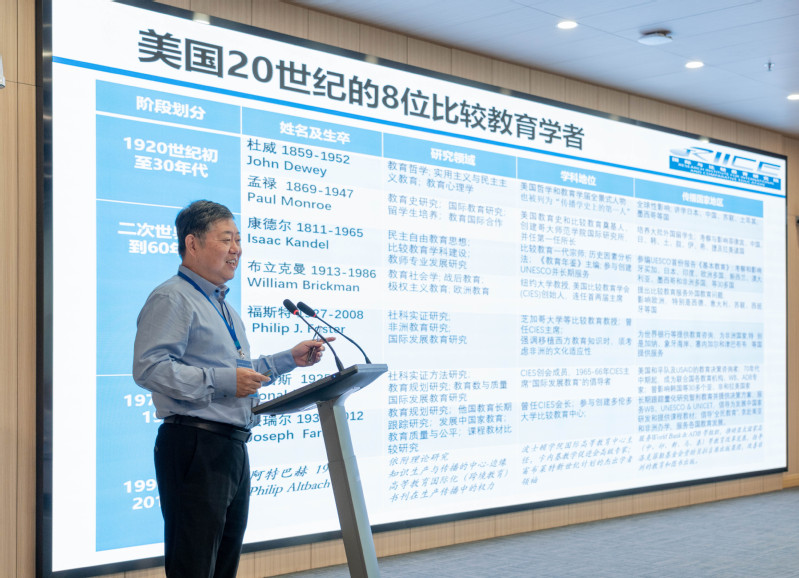
The journal exchange session, themed The Role of Journals in the International Dissemination of Educational Knowledge, invited Chen Xin, Deputy Editor-in-Chief of Foreign Education Studies; Zhang Miao, Executive Deputy Editor-in-Chief of The ECNU Review of Education; Wang Bingru, Director of the Editorial Department of Global Education Outlook; Niu Junming, Editor of Education Science; and Yan Wenle, Deputy Editor-in-Chief of Journal of Comparative Education. The session was chaired by Professor Wang Jie, Vice Dean of the Institute of International and Comparative Education at SHNU. Editors introduced their journals’ missions, review processes, and manuscript selection criteria, and discussed topics such as defining knowledge worthy of dissemination, the value boundaries dilemma, integrating Chinese voices into the international knowledge landscape, and future reforms for international dissemination. This session enhanced scholars’ understanding of academic journal selection criteria and clarified considerations for future research and publication.
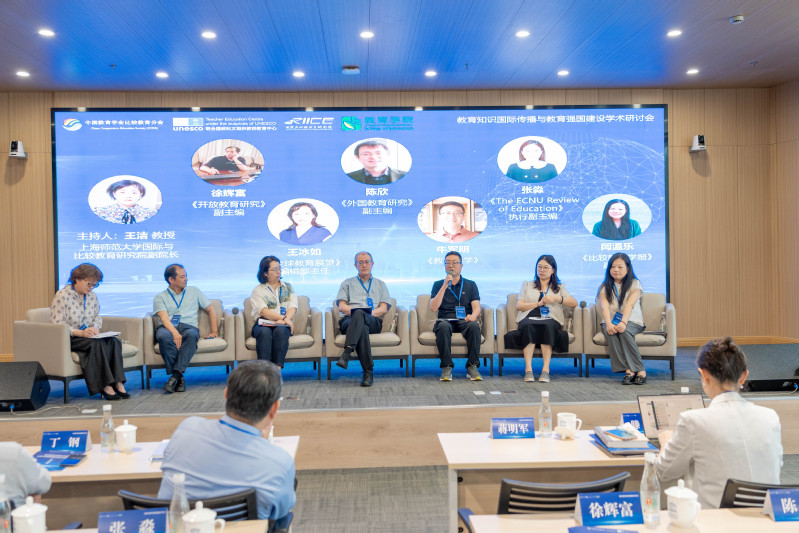
On the afternoon of June 21, four parallel forums were held, where experts and scholars engaged in lively discussions on Basic Theories and Methodological Innovation in the International Dissemination of Educational Knowledge, International Dissemination of Educational Knowledge and Global Education Governance, International Dissemination of Educational Knowledge and Global Talent Cultivation, and International Dissemination of Educational Knowledge and International Academic Cooperation.
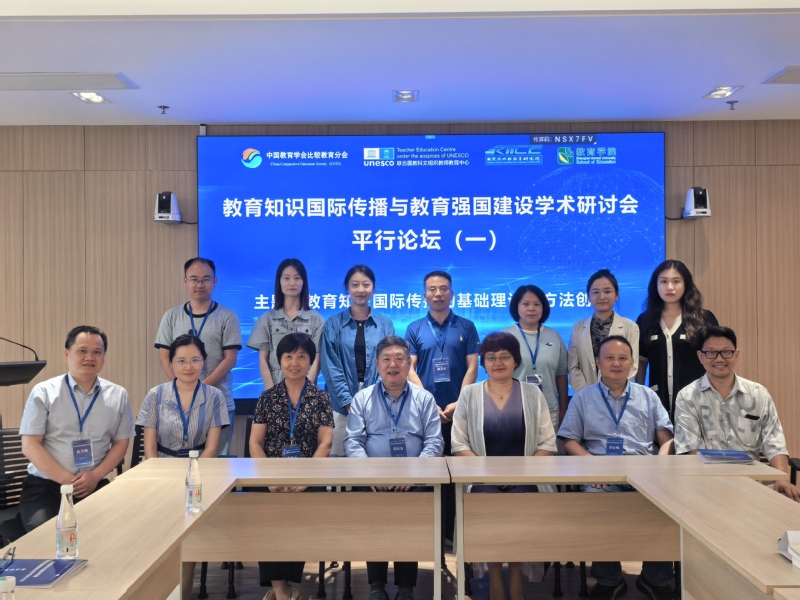
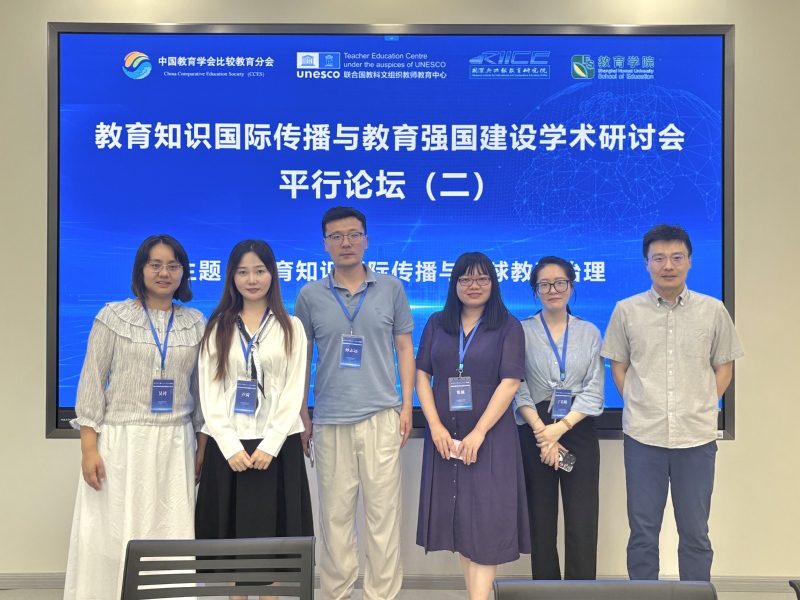
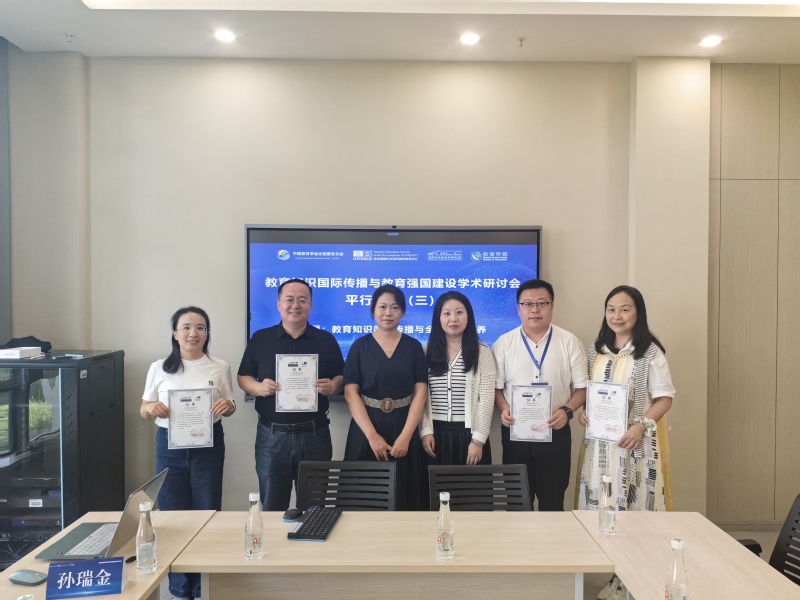
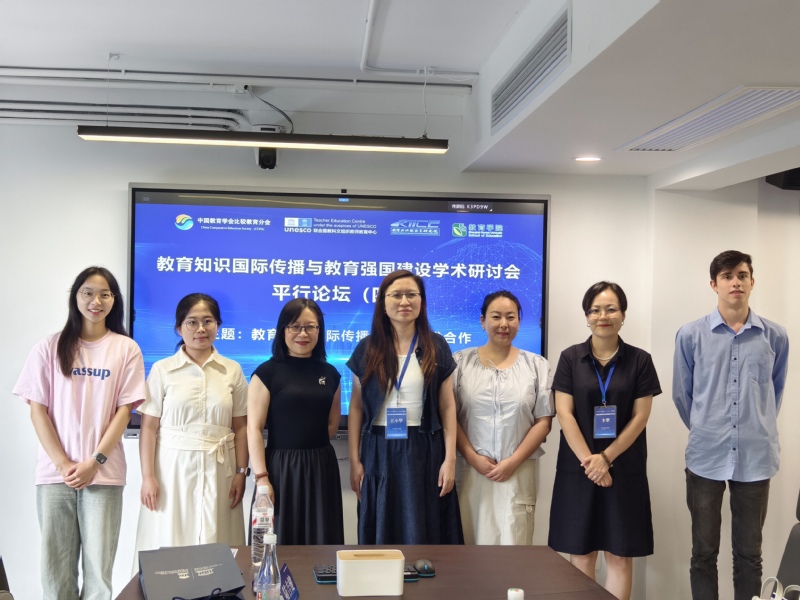
Following the parallel forum presentations, a roundtable discussion was held, featuring Professor Rao Congman from Northeast Normal University, Professor Xu Hui from Southwest University, Professor Peng Zhengmei from ECNU, and Professor Teng Jun from Beijing Normal University, with Professor Wu Xueping from Zhejiang University as the chair. The four professors discussed the significance of international dissemination of educational knowledge in the context of building a strong education country, effective approaches to such dissemination, and how comparative education scholars can better contribute. They noted that international dissemination enriches global knowledge, enhances international influence, and promotes cultural mutual learning, emphasizing the importance of locality in this process. They stressed that comparative education scholars should maintain a sense of urgency and willingness to learn to better advance educational knowledge dissemination.
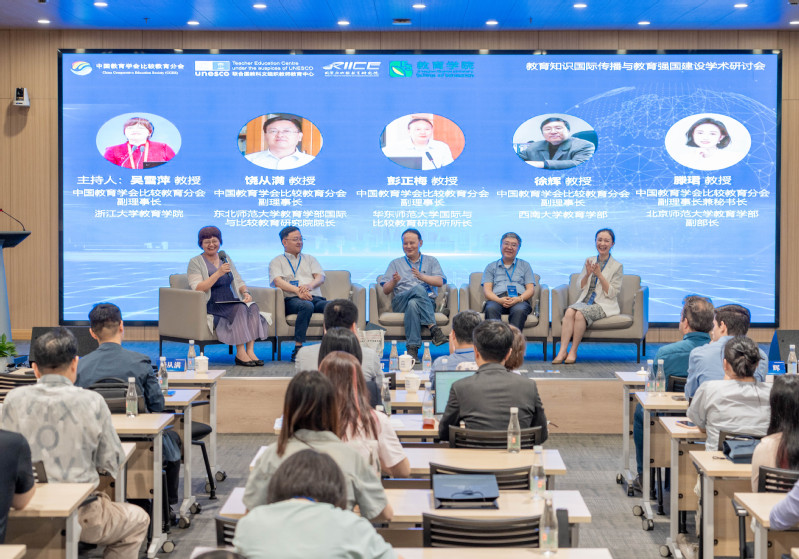
The closing ceremony was chaired by Associate Professor Song Jia, Council Member of the Comparative Education Branch of the Chinese Society of Education and Secretary of the Party Branch of the Institute of International and Comparative Education at SHNU, with remarks by Professor Zhang Minxuan. He first expressed sincere thanks to all attending experts and scholars. He emphasized that while promoting international knowledge dissemination, we should remain open to learning from the world. He noted that China has experienced a shift from passive to active in educational knowledge dissemination, and should actively share Chinese knowledge and experiences to enrich global educational knowledge. Finally, he expressed hope that scholars found their time at the UNESCO Teacher Education Centre enjoyable and rewarding, and that the centre would serve as a hub for ideological exchanges, committing to contributing more to China’s comparative education cause through this platform.
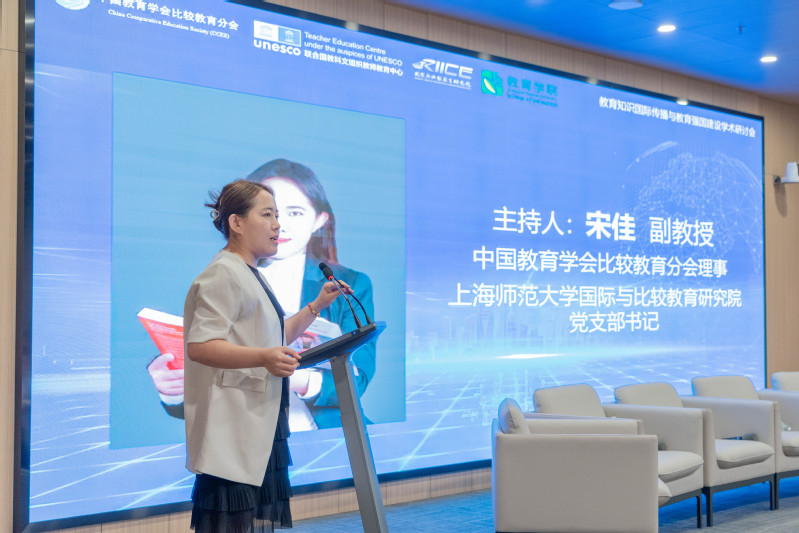
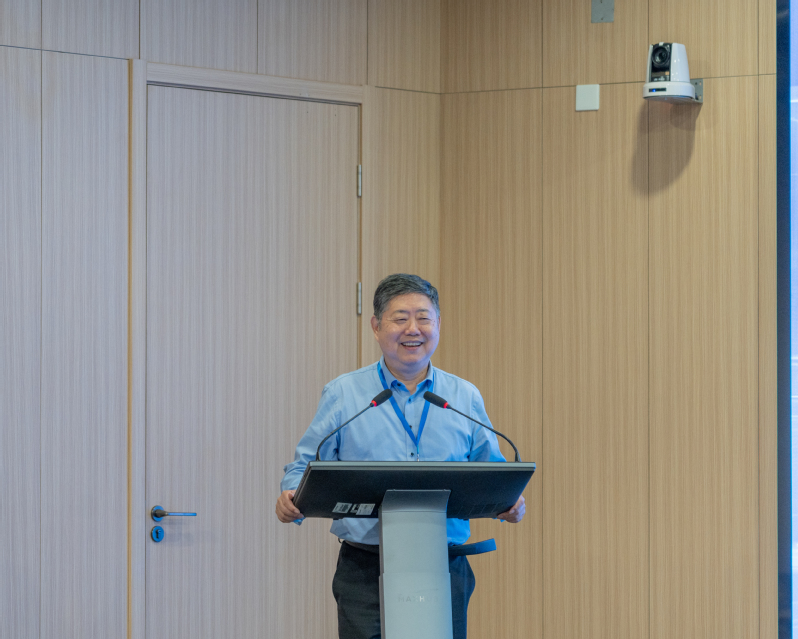
The successful holding of the Academic Seminar on International Dissemination of Educational Knowledge and Building of a Strong Education Country has provided a platform for comparative education experts and scholars to exchange ideas, deepened the understanding of international dissemination of educational knowledge in the comparative education community, and promoted high-quality development of the comparative education discipline in the new era.
Contributed by/Photos provided by: RIICE




